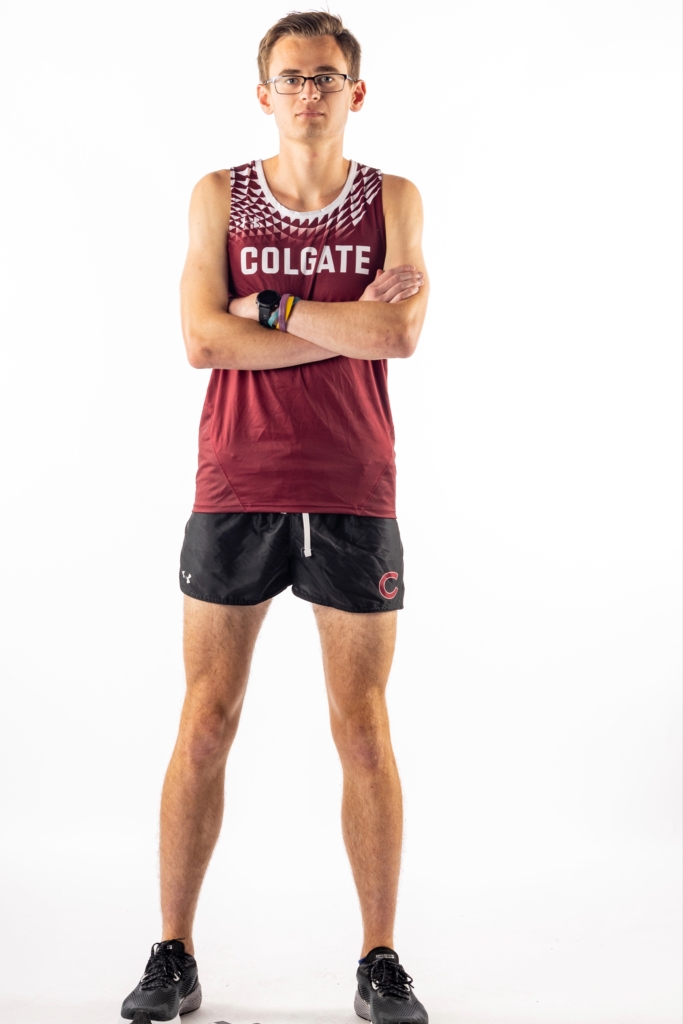Runner Gavin Fowler ’24 contributes to lunar research.
Gavin Fowler ’24 came going to Colgate to study astrogeophysics. The Hopewell, N.J., native grew up with a love for math and science, especially geology and astronomy. By choosing Colgate, he had the opportunity to study a topic that combined all his favorite subjects while allowing him to join the track
team as a distance runner.

After two years at Colgate, an opportunity emerged that Fowler had not envisioned when he began his college career. Heading into summer 2022, Fowler was invited to work with Associate Professor of Physics Jonathan Levine on a project that would later be selected by NASA for a mission to the moon.
The project is called CODEX (Chemistry Organic and Dating Experiment), and it consists of a one-of-a-kind spectrometer that’s built for spaceflight and designed to help scientists understand the age of rocks. Levine, one of the project’s lead scientists, has worked on CODEX with researchers from the Southwest Research Institute for 20 years. The instrument is kept at the institute’s Boulder, Colo., facility, and throughout the years, Levine has invited students to work with him on the project.
Fowler took on a number of vital tasks for the collaboration: In his first summer, he did various lab jobs, including data analysis of rocks; he spent the following summer in Boulder, working directly on the prototype.
“It took a lot of time to learn,” he says. “But it has been really rewarding.”
While Fowler was in Boulder, NASA announced it had selected CODEX for a lunar lander/rover mission to the moon. The spectrometer would be used to study the formation of the moon and its volcanic history.
Fowler says everyone involved in the project was ecstatic when NASA made the announcement: “It was really cool to see it happen.” While no official launch date has been set, the earliest is 2027.
CODEX is made up of several cumbersome lasers. But in order to meet NASA’s weight limitations, researchers have been reconfiguring the prototype to make it lighter, meaning fewer lasers. “We’ve been doing research into how we could collect data with only three lasers,” Fowler explains, adding, “for the most part, we have it down.”
He also co-authored a paper on the project, which was published by the Planetary Science Journal in 2023.
Levine applauds Fowler for his work: “Working with bright students like Gavin is the thing I like most about my job at Colgate. Gavin Fowler has a special ability to get to know his data the way some others know people: Each measurement has its own special qualities, idiosyncrasies, and even personality, and Gavin astonishes me with his ability to juggle all these in his head. That quality is what allowed us to get important science out of what had been a confusing set of observations.”
While Fowler’s commitment as a distance runner on the track and field team often required traveling and devoting considerable time to training, he found time to tutor two introductory physics courses, and he joined the physics and geology clubs.
Now that he’s graduated, Fowler is preparing for the next step in his journey: enrolling at the University of Chicago to pursue a PhD in cosmochemistry.
